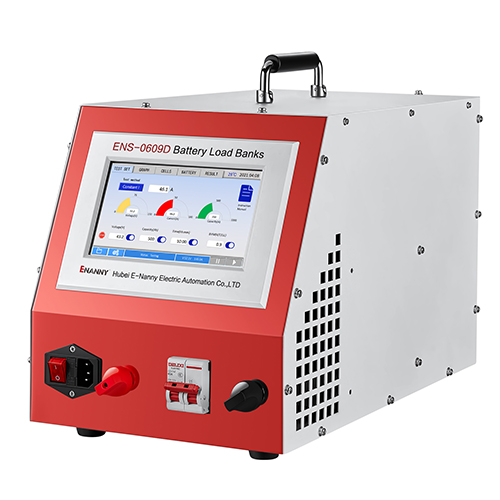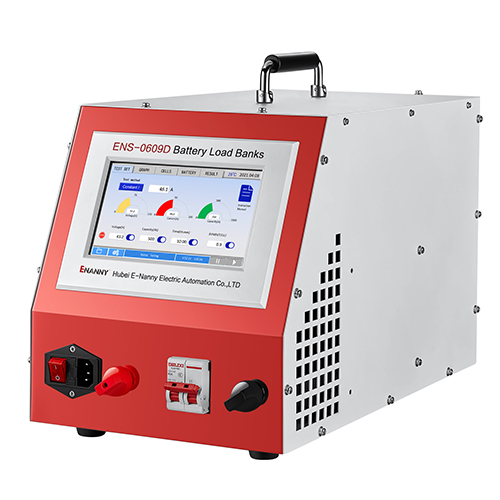Lithium batteries have become a core component of modern electronic products and are widely used in applications such as tablets, smartphones, laptops, UPS power supplies, and electric vehicles. However, the safety and reliability of lithium batteries are the focus of many brands and consumers. Therefore, lithium battery testers have emerged as the times require and become a necessary means for quality control of lithium batteries. The lithium battery tester can ensure the safety and reliability of lithium batteries before leaving the factory.

1. What is a lithium battery tester?
Lithium battery tester is an instrument that can test the safety, reliability and performance characteristics of batteries, and is an indispensable and important part of the lithium battery production process. The lithium battery tester can be used to measure the internal quality of the battery, such as voltage, capacity, discharge curve, charge curve, health and other key parameters. performance.
2. Types of lithium battery testers
Lithium battery tester can be divided into charge and discharge test, no-load test, safety test, boom test, vibration test, impact resistance test, aging test and other types.
1). Charge and discharge test: It is used to test the battery's charge and discharge curve, charge current, discharge current, charge voltage, discharge voltage, discharge capacity, battery temperature and other parameters.
2). No-load test: It is used to detect the voltage, current, charge capacity, battery capacity, discharge capacity, battery temperature, battery internal resistance, battery internal temperature, battery internal temperature and other parameters of the lithium battery.
3). Safety test: It is used to test the safety of the battery, to test the battery's short circuit protection, overcharge protection, over discharge protection, thermal protection, leakage protection, explosion protection and other parameters.
4). Boom test: It is used to test the safety of the battery in a high temperature environment, and detect the charging current, discharging current, charging voltage, discharging voltage, discharging capacity, battery temperature and other parameters of the battery at different temperatures.
5). Vibration test: It is used to detect the durability of the battery under different vibration frequencies, and to detect the charging current, discharging current, charging voltage, discharging voltage, discharging capacity, battery temperature and other parameters of the battery under different vibration frequencies.
6). Shock resistance test: It is used to test the durability of the battery under different impact forces, and detect the charging current, discharge current, charging voltage, discharge voltage, discharge capacity, battery temperature and other parameters of the battery under different impact forces.
7). Aging test: It is used to detect the performance of the battery after long-term use, and to detect the charging current, discharging current, charging voltage, discharging voltage, discharging capacity, battery temperature and other parameters of the battery in different time periods.
3. The role of lithium battery tester
1). Used to test the safety of lithium batteries: The lithium battery tester can detect the battery's short circuit protection, overcharge protection, over discharge protection, thermal protection, leakage protection, explosion protection and other parameters to ensure the safety of lithium batteries.
2). Used to test the reliability of lithium batteries: The lithium battery tester can detect the battery's charge and discharge curve, charge current, discharge current, charge voltage, discharge voltage, discharge capacity, battery temperature and other parameters to ensure the reliability of lithium batteries .
3). Used to detect the performance characteristics of lithium batteries: lithium battery tester can detect battery voltage, current, charging capacity, battery capacity, discharge capacity, battery temperature, battery internal resistance, battery internal temperature and other parameters to ensure the lithium battery performance characteristics.

4 Conclusion
Lithium battery tester is an indispensable and important part in the production process of lithium batteries, which can be used to test the safety, reliability and performance characteristics of batteries. The lithium battery tester can ensure the safety and reliability of lithium batteries, and is also an important means for lithium battery manufacturers to control battery quality, and is an indispensable lithium Battery Discharge Tester tool.
 English
English
 Español
Español
 Português
Português
 русский
русский
 français
français
 日本語
日本語
 Deutsch
Deutsch
 Tiếng Việt
Tiếng Việt
 Italiano
Italiano
 Nederlands
Nederlands
 Pilipino
Pilipino
 Türk
Türk
 Gaeilge
Gaeilge
 عربى
عربى
 Indonesia
Indonesia
 norsk
norsk
 čeština
čeština
 Ελληνικά
Ελληνικά
 فارسی
فارسی
 தமிழ்
தமிழ்
 Српски
Српски
 Català
Català
 עִברִית
עִברִית
 Galego
Galego
 Беларус
Беларус
 Hrvatski
Hrvatski
 ជនជាតិខ្មែរ
ជនជាតិខ្មែរ
 Кыргыз тили
Кыргыз тили
 O'zbek
O'zbek
 Lëtzebuergesch
Lëtzebuergesch
 ไทย
ไทย
 Polski
Polski
 한국어
한국어
 Svenska
Svenska
 magyar
magyar
 Malay
Malay
 বাংলা
বাংলা
 Dansk
Dansk
 Suomi
Suomi
 हिन्दी
हिन्दी
 български
български
 ລາວ
ລາວ
 Latine
Latine
 Қазақ
Қазақ
 Euskal
Euskal
 Македонски
Македонски
 Lietuvos
Lietuvos
 Eesti Keel
Eesti Keel
 Română
Română
 मराठी
मराठी




